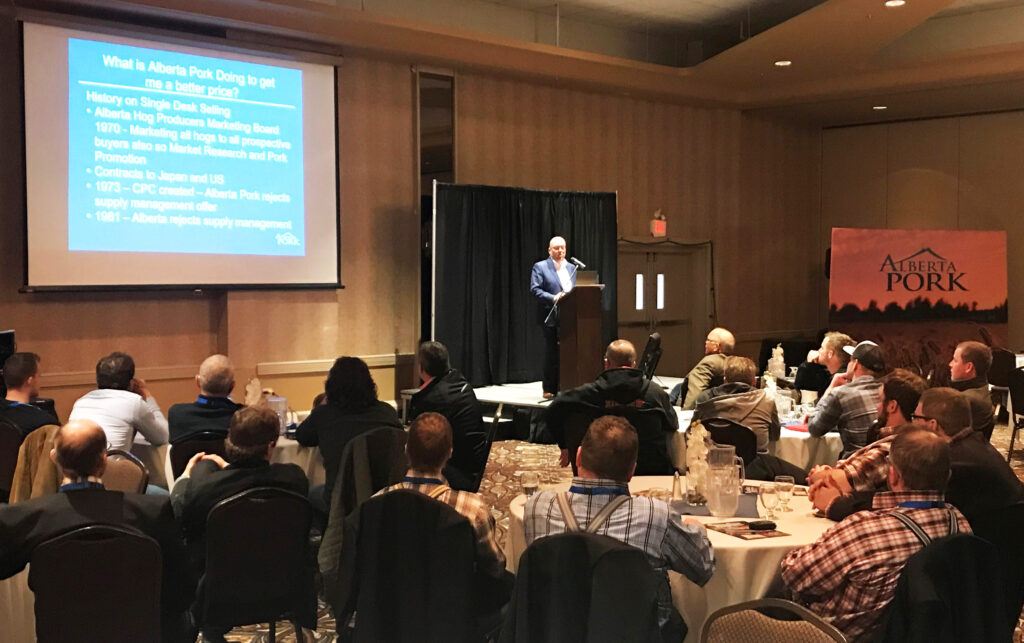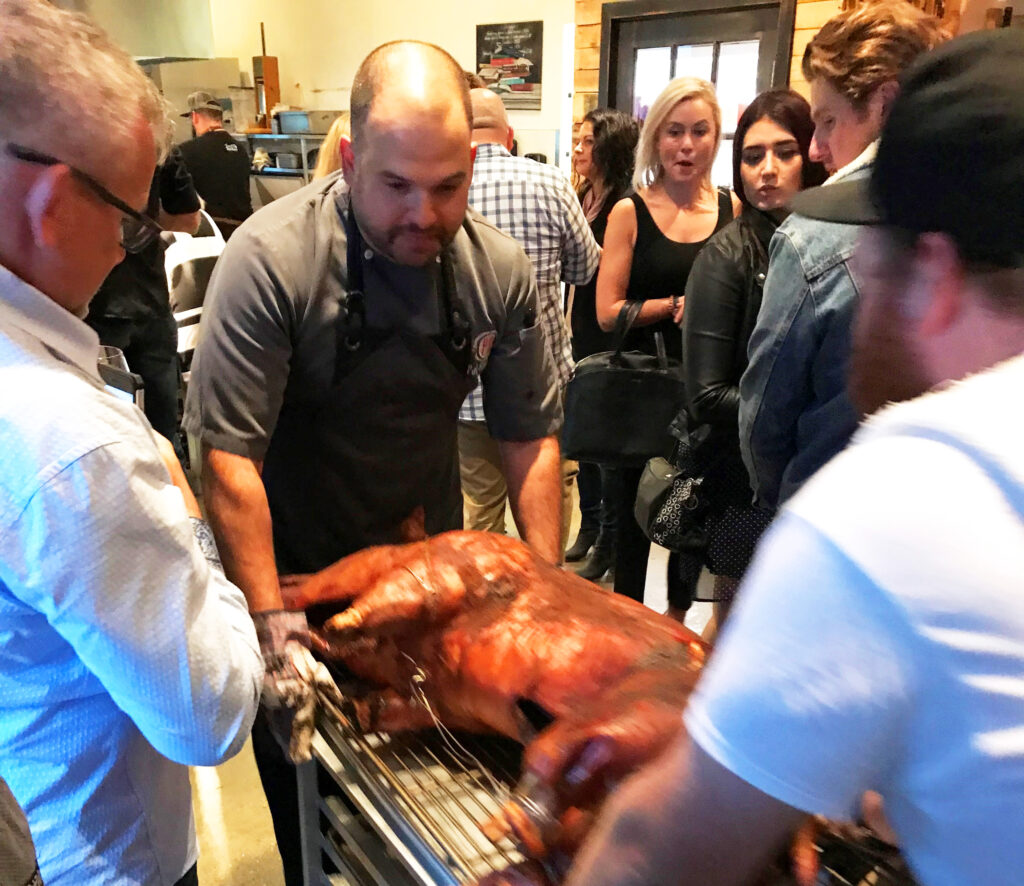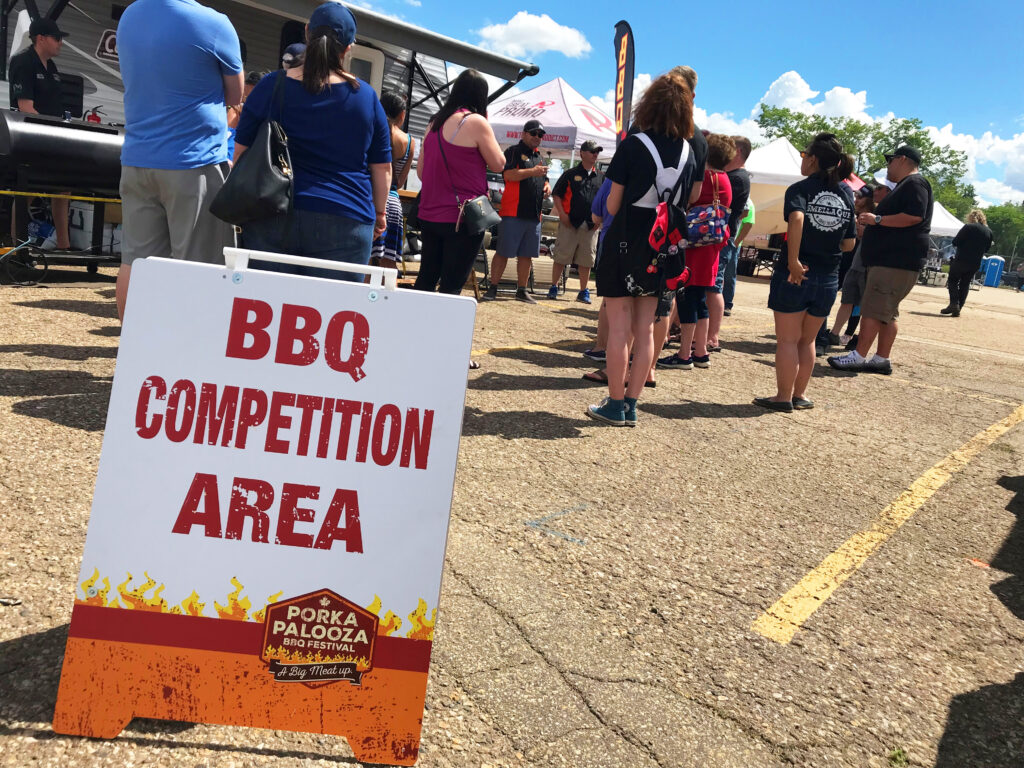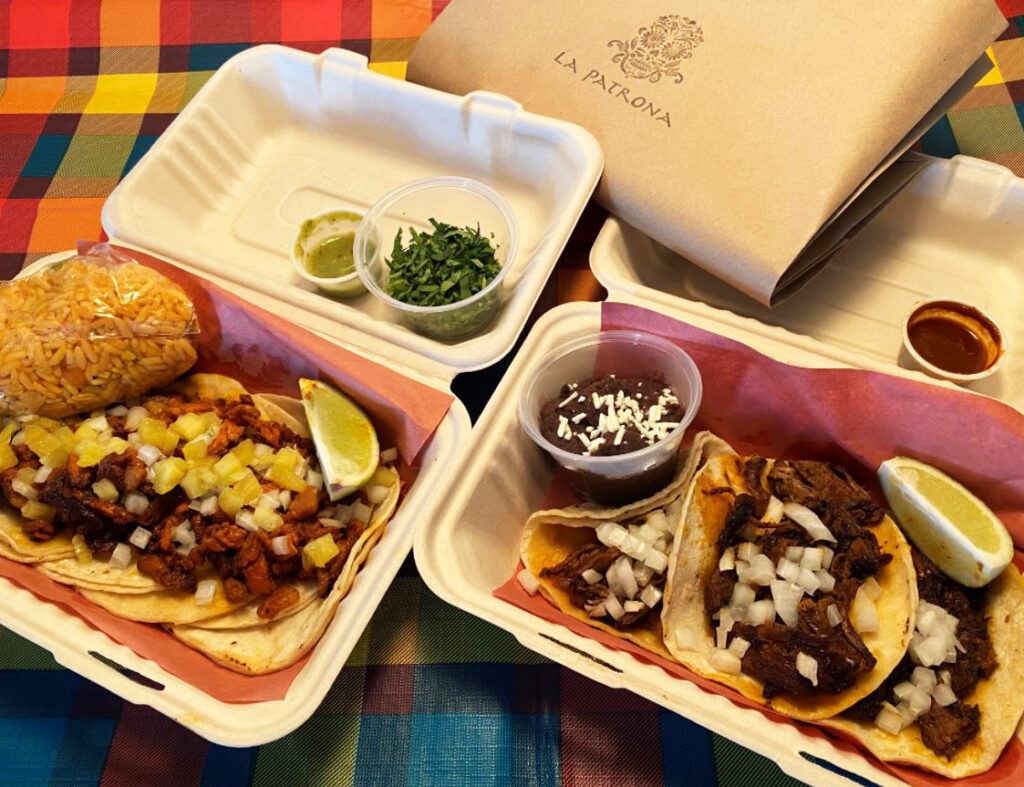By Carrie Selin
Editor’s note: Carrie Selin is Manager of Taste Alberta, representing organizations within Alberta that have come together to encourage loyalty to local foods. She can be contacted at carrie.selin@tastealberta.ca.
By now, almost everyone in the Canadian agri-food industry has experienced some form of minor or major disruption to a meeting, conference or event that had been previously scheduled to take place in-person, prior to COVID-19.
With the easing of public health restrictions across the country, many people are breathing a little easier these days and looking forward to the continued interpersonal interactions that were missed in the past year or longer. Getting back to regularly planned activities, as before the pandemic, has become a priority for enhancing industry effectiveness and improving workplace pride and satisfaction.
Producer get-togethers stifled

The Canadian agri-food value chain begins with producers, and COVID-19 has had a range of unexpected impacts on how business has been conducted. Sometimes, the impact was relatively minor, such as a few more phone calls or an exchange of emails instead of meeting for coffee. For others, the impact was a little more painful, forcing a change in habit from normal gathering settings to a completely virtual arrangement – something that even the most tech-savvy among us can struggle with.
“When COVID-19 restrictions were originally put into place in Alberta last year, it was the very day after our last face-to-face meeting with producers,” said Brent Moen, Chair, Alberta Pork. “Little did we know then it would take this long, but we are excited to get back to in-person meetings, hopefully within the coming months.”
The meeting referenced by Moen – one of four hosted by Alberta Pork across the province – touched on many hot-button issues that were burning then and are still smouldering today. Often, when it comes to addressing important business, something is lost when that process moves out of the hotel conference room and into the Zoom meeting room.
However, feedback from producers on subsequent virtual meetings – such as Alberta Pork’s annual general meeting (AGM) in November 2020 and following the round of semi-annual meetings in March 2021 – suggests that, while producers almost unanimously prefer in-person get-togethers, the virtual platform can be useful when needed. In lieu of an ability to gather in-person, remote meetings have been an adequate replacement and have even offered some benefit when it comes to limiting unnecessary travel and making those meetings more easily accessible to producers who struggle to balance their farm workload with taking time to attend a meeting in town.

More broadly, larger, internationally recognized events like the half-century-old Banff Pork Seminar were hit by restrictions in more ways than one. The Banff Pork Seminar is known as a premier event within the North American and global swine industry, attracting hundreds of attendees every year. However, in addition to the excellent programming offered, there is simply no way to digitally replicate the splendor of the Canadian Rockies. In 2020, the Banff Pork Seminar attracted upwards of 800 guests, which was matched in 2021, albeit with much less fanfare.
“We look forward to hopefully seeing everyone in-person in beautiful Banff for our delayed 50th anniversary celebration,” said Ashley Steeple, Conference Coordinator, Banff Pork Seminar. “The 2021 edition of the Seminar presented many challenges, and while we were able to climb over that hurdle in the end, we would much prefer a return to what everyone knows and loves!”
Originally, the Banff Pork Seminar organizing committee had considered extended opportunities as part of a 50th anniversary celebration, including a banquet, with a meal served by the legendary kitchen at the Fairmont Banff Springs Hotel. This celebration was wisely though grudgingly postponed, as attempting a virtual equivalent would have been a major injustice to fully appreciating the quality of the food at the Banff Springs, in addition to the life-long memories that are forged in that kind of intimate setting.
While the virtual world has presented us with many unique solutions to COVID-related problems, some things, such as celebrations, are too substantial to re-create.
Public engagement efforts transitioned

COVID-19’s impacts on food processing have been well-documented, but further down the value chain, the successful execution of food-related marketing activities has continued to bolster farming communities by encouraging support for Canadian-grown and -raised food.
In the past, consumer engagement opportunities have focused on extoling the virtues of high-quality Canadian food, with opportunities to meet a farmer or taste a local dish prepared by a talented chef. Events and festivals are an effective way to showcase where food comes from beyond the grocery store, but gathering limits have smothered some of the momentum like a wet blanket.
With that in mind, COVID-19 restrictions have meant that we need to find new ways for consumers to take in memorable experiences without being in direct contact with those offering the experiences, and this has taken shape in different ways.
“Like many other businesses in the province, we have been experimenting with solutions to continue serving our customers safely, creating the best possible experience in spite of conditions,” said Paul Shufelt, Chef & Proprietor, Workshop Eatery. “Some of those concepts have done better than others, and going forward, we are looking to leverage our lessons learned in a world that is embracing new ways of appreciating great food, during a pandemic or otherwise.”
Shufelt is a proud partner of Alberta Pork, having been involved in multiple events over the years celebrating all things piggy. In addition to his flagship restaurant, he operates two Woodshed Burgers locations in Edmonton, acts as an ambassador for the local culinary scene and has appeared on Food Network Canada’s “Fire Masters” as a contestant. Being on the cutting edge is in his nature, and like many other innovative food industry players, COVID-19 has allowed him to flex his creative muscles.
Rather than offering dining room service or hosting private functions, restaurants across the country have made the move to high-end takeout options, including full gourmet meals, along with newer concepts, such as cocktail packages. Cooking classes and demonstrations, usually reserved for public spots, have moved online, giving viewers a glimpse into processional kitchens without the hassles of finding physical space or needing to consider aspects of food safety in the service environment.

The Porkapalooza BBQ Festival is a world-class cooking competition, sanctioned by the Kansas City Barbeque Society (KCBS) – the world’s largest organization of barbeque and grilling enthusiasts. Historically, Porkapalooza has afforded groups like Taste Alberta and Alberta Pork the opportunity to collaborate and bring agri-food education to the masses. Since 2014, Porkapalooza has taken place annually in Edmonton, with the exception of 2020, when the event was stayed until May 2021, and then further moved to August 2021. In the early days of COVID-19, when it was uncertain whether restrictions would last two weeks, two months or two years, Porkapalooza’s path forward was unclear but ever-optimistic.
“We are incredibly eager to get back to hosting our competition for all the BBQ teams that invest their own time and money to take part,” said Mark Bosworth, Chair, Porkapalooza BBQ Festival Society. “Our event showcases some of the best food around, from some of the best cooks and pit masters you’ll find, which is a testament to the great work of everyone in the value chain – all the way back to the farmers who raise the products we are privileged to use.”
In 2021, Porkapalooza will look a little different, as this year’s competition is closed to the public – a difficult decision made earlier in the year, prior to the first postponement, out of an abundance of caution. In previous years, Porkapalooza came with a well-attended public festival component, including interactive tours of the cooking area, food stage demonstrations from local pros, plus plenty of family-friendly entertainment to ensure an enjoyable experience for everyone. While the festival’s valued guests will not be able to attend in-person this year, there are still plenty of opportunities to participate online, including prize contests and other event-related content shared through social media.
In years past, team attendance has pushed upwards of 50 cooking crews, mostly from Alberta and Saskatchewan, but also from as far away as British Columbia, Manitoba and Ontario. Given restrictions that were in place when the festival was first being organized, and on account of event logistics, Porkapalooza this year will host close to 30 BBQ teams to build excitement heading toward the 2022 event, which will hopefully inspire even more teams to participate, with public guests welcomed back.
Arriving at the ‘new normal’

When it comes to telling the story of the Canadian agri-food value chain, the most authentic and resonating way to accomplish that goal is to place consumers directly into conversations with producers. And for producers, being aware and informed of industry issues around them is a necessary condition of being able to tell that story in a compelling and accurate way.
Natural opportunities to facilitate conversations between producers and consumers are presented with in-person events, generating widespread return-on-investment for the entire industry. Now more than ever, digital platforms have become critical to transmitting information, by using blogs and social media to promote content like photos and videos that try to capture a larger total experience and story.
With lockdowns and other restrictions in place to keep us safe, creating meaningful engagement has proven difficult. People have gradually become ‘Zoomed out’ with ‘COVID fatigue’ – the cultural symptom of a public health emergency, whether one falls ill or not. Most people today spend at least some of their working day behind a computer, and spending leisure time staring at a screen has become less appealing as time goes on.
If you were wary of the ‘new normal’ just as COVID-19 was starting to ramp up, the good news is that the bitter pill of change is getting somewhat easier to swallow, with the end of restrictions coming into view. As we all anticipate bigger and better things coming in the Canadian agri-food industry, COVID-19 has shown us new ways of flourishing under less-than-ideal circumstances.






